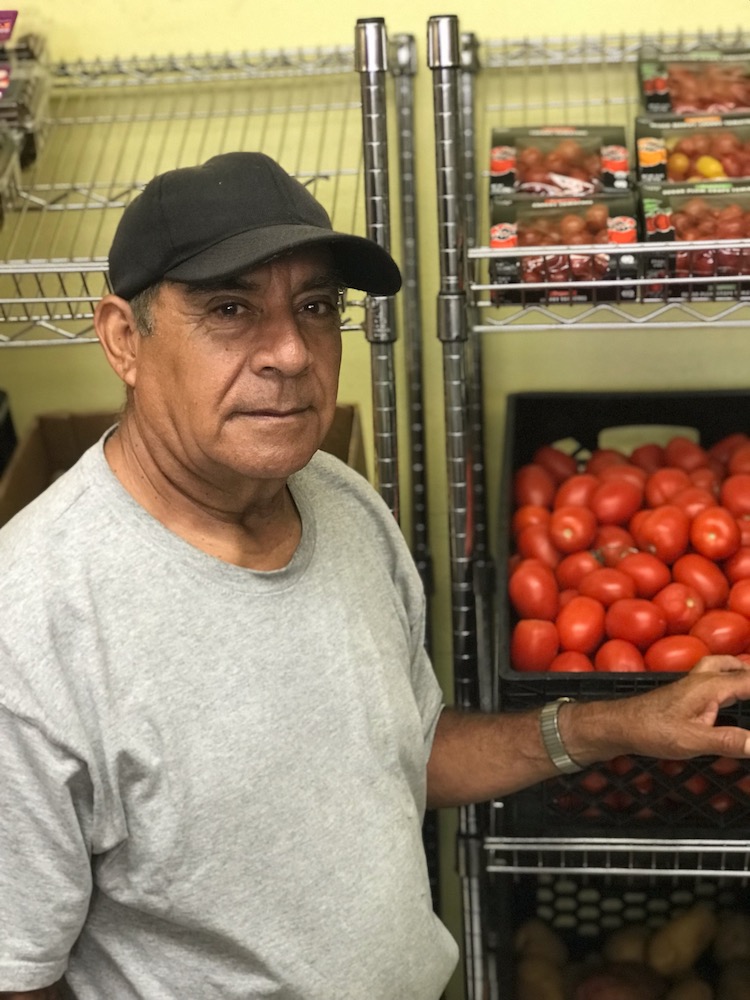Catholic Charities

As centennial celebrations go, the commemoration may not be as center-of-attention as that of the Granada Theatre or Old Spanish Days/Fiesta, two beloved and longstanding institutions hitting their respective century marks this year – but Catholic Charities Santa Barbara region is also marking its 100th birthday in 2024. This storied nonprofit – whose mission it is to collaborate with diverse communities to provide services to the poor and vulnerable, promote human dignity, and advocate for social justice – reaches the 100-year milestone of life-changing service this year. While the occasion may not match the headline-grabbing allure of those aforementioned organizations, it is no less important.
For Catholic Charities, though, this 100th anniversary isn’t a catalyst for loud celebration. Indeed, rather than calling attention to itself by a big gala, the nonprofit is most assuredly putting the vast majority of its efforts into continuing to do everything in its power to reduce homelessness, hunger, and hopelessness among the most vulnerable of Santa Barbara’s residents by meeting their basic needs.

“We are facing the largest demand in our 100-year history,” said Greg Cornell, Director of Development for the Santa Barbara Region of Catholic Charities of Los Angeles, Inc., the nonprofit’s official name. “We are serving over 44,000 unduplicated county residents. The food pantry at our Haley Street location sees between 500 to 600 people every week.”
Catholic Charities directly addresses the most pressing areas in the hierarchy of human needs: food, health, shelter, and clothing. The organization’s thrift store on Haley Street, for example, not only raises much needed funds, but also serves as a source for clothing and other goods for its clients, who receive vouchers to purchase essentials there.
“Our goal is to break the cycle of intergenerational homelessness and hunger and provide the basic needs for children, teens, mothers, families, and seniors,” said Yolanda Vasquez, Catholic Charities’ Regional Director for Santa Barbara in a statement.
What that means is coordinating care, Cornell explained.
“They come to us in an emergency when they’ve run out of money because of the pandemic, or losing their job, and are maybe just a move away from being homeless. By being a coordinated source, we help them with their rent, we help them with their utilities, we help them get a job. We help them with their health issues and a referral network, which includes the employment department, and general mental health departments. So together we take on these individuals and see that they find the help they need to break the cycle of unemployment and homelessness.”
So while Catholic Charities provides the basic needs, there’s also attention to figuring out how to interrupt the cycle and lift people to be able to find their own way in the world.
“At the Santa Barbara Center’s thrift store, we’re really focused on, for example, shoes for teens and children so they can go to school, and clothing for parents so they have something that looks good when they’re going to a job interview,” Cornell said. “It’s not just feeding them; we’re trying to nurture them and help them break that cycle. Providing groceries, providing food to their children and clothing for the family, it gives them a holistic opportunity to secure their goals.”
Where Catholic Charities can’t directly provide services, the organization is part of a countywide network of nonprofit organizations that offer various types of services, meaning its case managers can refer them to employment centers, mental health organizations, and elsewhere.
“That’s really been the saving grace over the last five to 10 years,” Cornell said. “Creating this network so we know where to advise these folks to go to and combine our efforts has really helped in making headway.”
Cornell stressed that you don’t have to be a Catholic to receive services, nor does the organization proselytize as part of its offerings.
“We are just trying to serve the homeless and the hungry, no matter who they are,” Cornell said. “If they’re an undocumented immigrant, we help ‘em. All we care about is whether they need our help, not who they are or what they believe.”
To be sure, Catholic Charities isn’t completely ignoring its 100th anniversary. The organization is launching the Legacy Centennial Capital Campaign in May to help sustain its 100 years of human services. Co-chaired by Vito Gioiello, the Managing Director at J.P. Morgan Wealth Management, and Patrick Beach, CEO of Captec Financial Group, the campaign’s funds are earmarked for such non-sexy (but vital) things as parking lot refurbishment for the Haley Street location, which still has its original grounds, as well as landscaping, facilities and painting of the aging building.
“Anyone 100 years old has some fixing up to do,” Cornell said.
Catholic Charities is also preparing for its fourth annual Fiesta fundraiser in August, and actively seeking sponsors for the event held under the stars at the Santa Barbara Club and featuring mariachis followed by drinks, appetizers, dinner and dancing.
If a $1,000 donation isn’t doable, there are many other ways to support the nonprofit, including donating to its thrift store. Visit www.catholiccharitiessbc.org.







